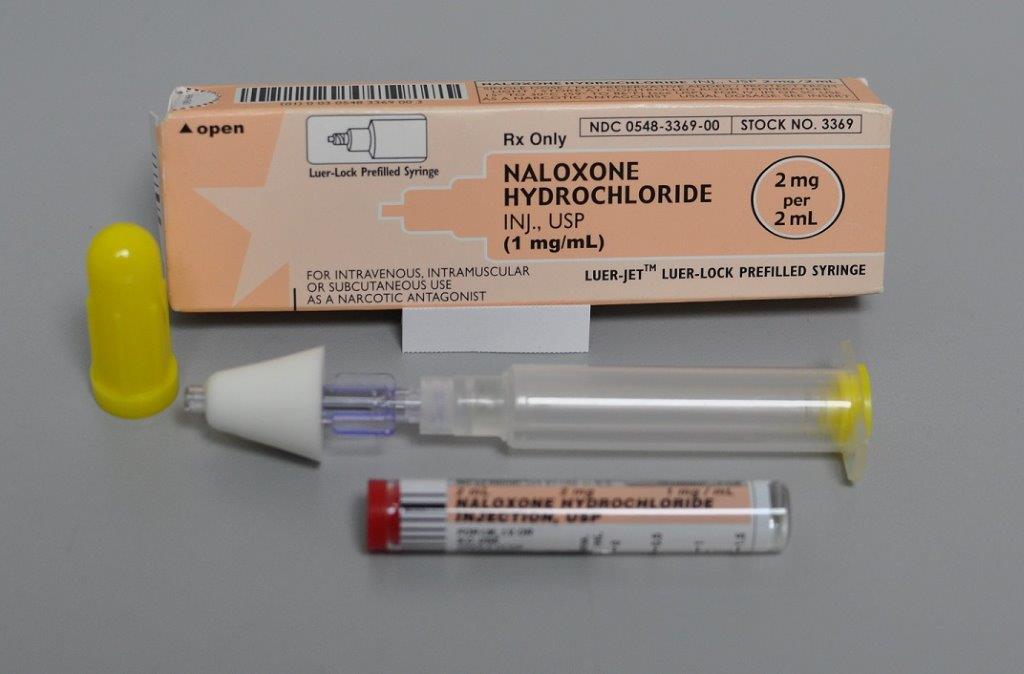B.C. reports another record-high monthly total of illicit drug deaths in June
The BC Coroners Service has published updated reports on illicit drug toxicity deaths and fentanyl-detected drug deaths for the first six months of 2020, with 175 illicit drug toxicity deaths reported in June.
For the second straight month, B.C. is reporting the highest monthly total for deaths due to illicit substances.
“For the second month in a row, this province has experienced the highest number of deaths ever as a result of illicit substances with 175 lives lost, leaving behind grief and frustration while this public health emergency carries on into its fifth year,” said Lisa Lapointe, chief coroner, BC Coroners Service. “We know the COVID-19 pandemic has impacted people who use drugs, as it has all British Columbians. Access to key harm reduction services has been a challenge and our social networks are smaller.
“For those using substances – opioids or otherwise – please make sure you use only in the presence of someone who will call for immediate help if you need it, use at an overdose prevention or supervised consumption site, and have your drugs checked before using, if you can. The drug supply in our province is highly toxic and the risk of using alone is too high. Buddying up could save your life.
“I also want to note the Province’s new risk mitigation guidance in the context of dual public health emergencies and encourage clinicians to support those who are at risk of overdose because of the toxic drug supply. The risks of the illicit market are unmanageable, and access to safe supply for those with this medical condition is essential to save lives. We are monitoring for the presence of hydromorphone in post-mortem toxicity results and have seen no evidence of a link between increased prescriptions and the increase in deaths. It is clear this is not just an opioid epidemic, with cocaine and methamphetamine/amphetamine detected in many drug deaths we investigate. However, we do know that illicit fentanyl remains the most significant driver in the tragic number of deaths our communities are experiencing.”
The illicit drug toxicity death total for June surpasses the previous highs of 171, reported in May 2020, and 161 reported in December 2016. B.C. has recorded four consecutive months with over 100 illicit drug toxicity deaths.
“Today’s report clearly shows us that the tragedy of overdose deaths from the toxic street drug supply in B.C. continues to escalate. While much effort has been made to reduce harm, remove stigma and provide the care that people living with addiction need, the impacts of the pandemic have made the situation dire for too many,” said Dr. Bonnie Henry, provincial health officer. “We remain focused on this critical work and will not let up. For the families who have lost loved ones, please know we too feel your loss. These are our brothers and sisters, our neighbours, our community members. All of us must reach out and let people who use drugs know they are not alone and there is help.”
Once again, post-mortem toxicology testing data published in this most recent report suggests an increase in the number of cases with extreme fentanyl concentrations (exceeding 50 micrograms per litre) in April, May and June 2020 compared with previous months.
“The number of lives lost over more than four years of a public health emergency is heartbreaking. That each one of these deaths was entirely preventable makes this emergency all the more tragic,” said Dr. Perry Kendall, co-interim executive director at the BC Centre on Substance Use. “It is quite clear what needs to be done: invest in a public health approach to substance use that promotes the health and equity of people who use drugs. This must include not only decriminalization, but also pharmaceutical alternatives to the toxic drug supply. Alongside investments in an evidence-based substance-use system of care to support recovery, treatment and harm reduction, these are the critical steps needed to finally end this emergency.”
There have been 728 illicit drug deaths to date in 2020 in B.C., and the number of deaths in each health authority is at or near the highest monthly totals ever recorded.
“Creating a permanent, accessible safe supply and decriminalizing people who use drugs are both urgently needed to stop overdoses and should have happened long ago,” said Guy Felicella, peer clinical advisor, Overdose Emergency Response Centre and BC Centre on Substance Use. “I’m tired of waiting for what’s necessary when the calls for these changes have been made over and over again. And I’m tired of seeing people die while waiting for access to a safer supply or access to detox or to get into recovery. The waiting is killing people.”
Dr. Shannon McDonald, acting chief medical officer of the First Nations Health Authority, added that the impact on First Nations people in B.C. from this crisis is higher than the rest of the province’s population.
“Indigenous people continue to be disproportionately impacted by this worsening crisis. Real change is needed and we could begin with more of what works, namely harm reduction and a safe drug supply,” McDonald said. “In the meantime, let us be kind to those who use substances to escape the pain they are living with and lovingly remember those we have lost.”
Learn More:
Illicit drug overdose death report: https://www2.gov.bc.ca/assets/gov/birth-adoption-death-marriage-and-divorce/deaths/coroners-service/statistical/illicit-drug.pdf
Fentanyl-detected death report: https://www2.gov.bc.ca/assets/gov/birth-adoption-death-marriage-and-divorce/deaths/coroners-service/statistical/fentanyl-detected-overdose.pdf
Mode of Consumption report: https://www2.gov.bc.ca/assets/gov/birth-adoption-death-marriage-and-divorce/deaths/coroners-service/statistical/mode-of-consumption.pdf
Toward the Heart: http://www.towardtheheart.com
Stop Overdose BC: https://www.stopoverdose.gov.bc.ca
BC Centre on Substance Use: http://www.bccsu.ca
Risk mitigation prescribing guidelines in the context of dual public health emergencies: https://www.bccsu.ca/wp-content/uploads/2020/04/Risk-Mitigation-in-the-Context-of-Dual-Public-Health-Emergencies-v1.5.pdf
Lifeguard app: http://www.phsa.ca/about/news-stories/news-releases/2020-news/new-lifeguard-app-launched-to-help-prevent-overdoses
BC Centre for Disease Control overdose response indicators: http://www.bccdc.ca/health-professionals/data-reports/overdose-response-indicators



























Comments